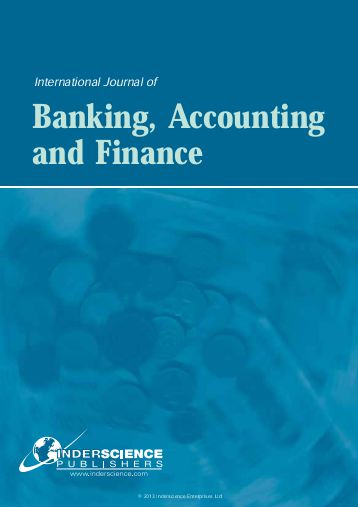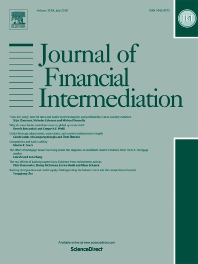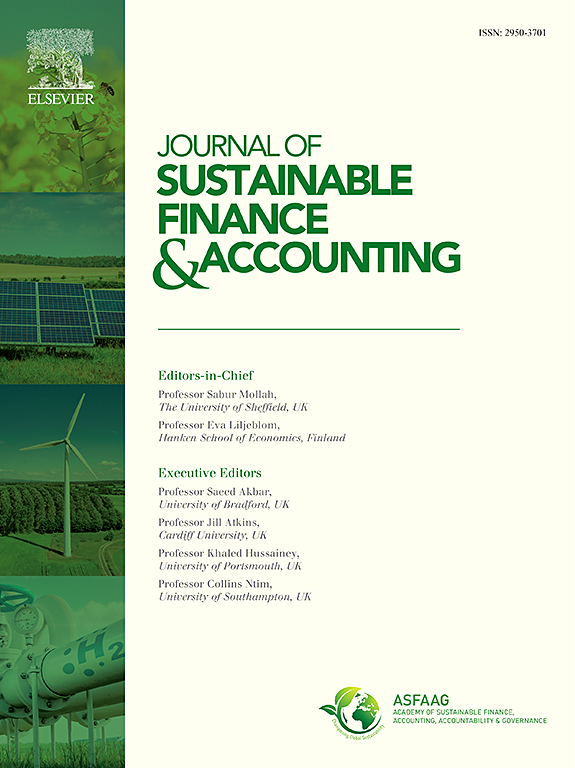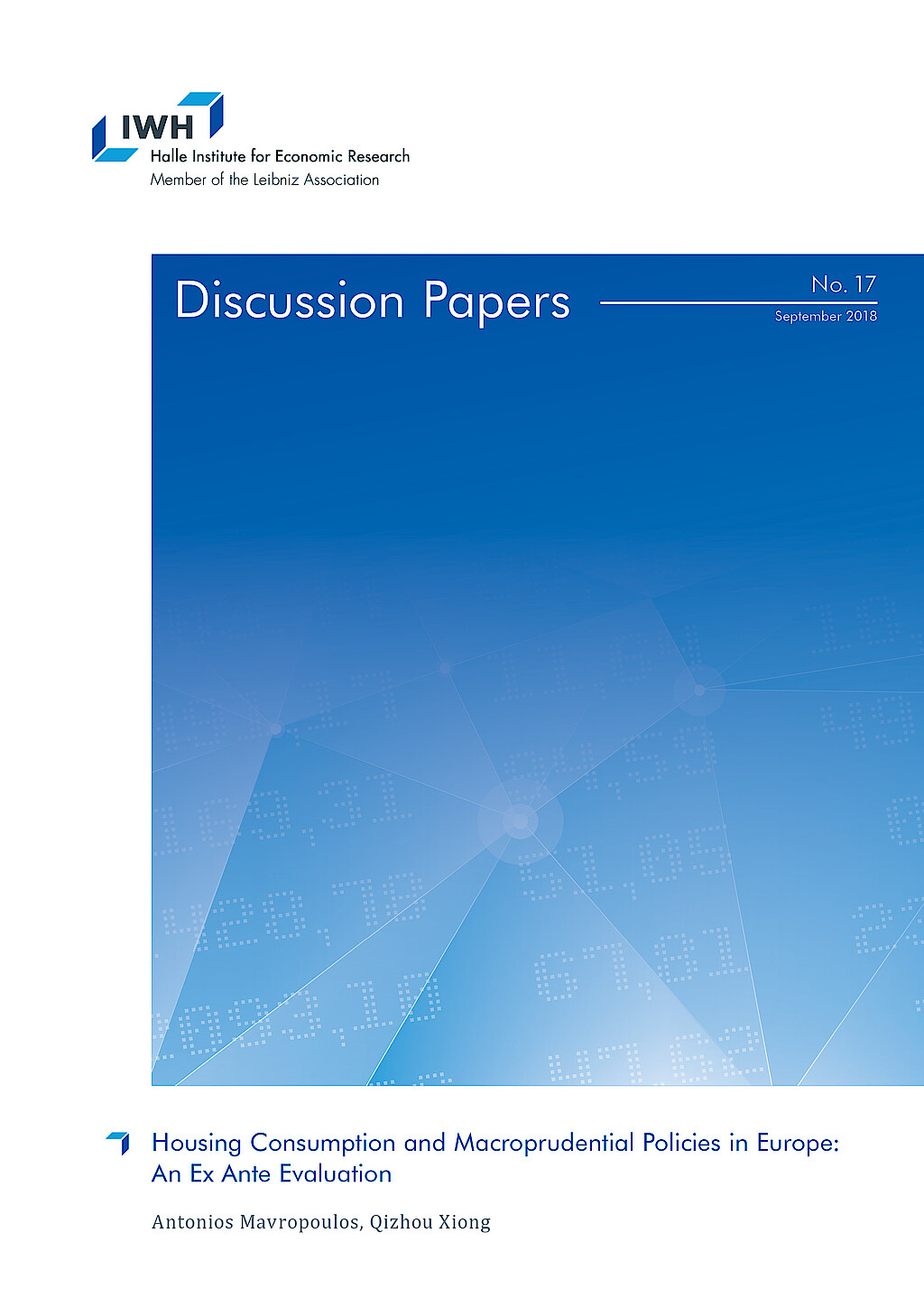Risikoverlagerung in Finanzmärkten und nachhaltige Finanzierung
Erleichtern Finanzinstitute nachhaltige Finanzierungen? Diese Forschungsgruppe untersucht die Anreize der Kreditgeber zur Risikoverlagerung, ihre Entscheidungen bei der Unterstützung nachhaltiger Unternehmen und wie sich nachhaltige Finanz- und Rechtsinnovationen auf Unternehmen und Haushalte auswirken.
Forschungscluster
Finanzresilienz und RegulierungIhr Kontakt

- Abteilung Finanzmärkte
Referierte Publikationen

Tax Authority Attention and Financial Reporting
in: International Journal of Banking, Accounting and Finance, im Erscheinen
Abstract
<p>We study the effects of Tax Authority (IRS) attention on a firm’s financial reporting. We explore whether firms institute a higher degree of accounting conservatism in response to IRS monitoring. Using data on IRS acquisition of public firms’ 10-K financial disclosures to proxy for IRS attention, we find that when firms are under IRS attention, they tend to initiate higher levels of unconditional and, to some extent, conditional accounting conservatism. We alleviate some of the endogeneity concerns by using pre- and post-IRS attention environments between the treated group (firms with IRS attention) and a propensity score that matches the control group of firms (no IRS attention). These results withstand several robustness tests and subsample analyses.</p>

Deposit Competition and Mortgage Securitization
in: Journal of Money, Credit and Banking, im Erscheinen
Abstract
<p>We study how deposit competition affects a bank's decision to securitize mortgages. Exploiting the state-specific removal of deposit market caps across the U.S. as a source of competition, we find a 7.1 percentage point increase in the probability that banks securitize mortgage loans. This result is driven by an 11 basis point increase in deposit costs and corresponding reductions in banks' deposit holdings. Our results are strongest among banks that rely more on deposit funding. These findings highlight a hitherto undocumented and unintended regulatory cause that motivates banks to adopt the originate-to-distribute model.</p>

Carbon Transition Risk and Corporate Loan Securitization
in: Journal of Financial Intermediation, im Erscheinen
Abstract
<p>We examine how banks manage carbon transition risk by selling loans given to polluting borrowers to less regulated shadow banks in securitization markets. Exploiting the election of Donald Trump as an exogenous shock that reduces carbon risk, we find that banks’ securitization decisions are sensitive to borrowers’ carbon footprints. Banks are more likely to securitize brown loans when carbon risk is high but swiftly change to keep these loans on their balance sheets when carbon risk is reduced after Trump’s election. Importantly, securitization enables banks to offer lower interest rates to polluting borrowers but does not affect the supply of green loans. Our findings are more pronounced among domestic banks and banks that do not display green lending preferences. We discuss how securitization can weaken the effectiveness of bank climate policies through reducing banks’ incentives to price carbon risk.</p>

Climate Change Exposure and the Value Relevance of Earnings and Book Values of Equity
in: Journal of Sustainable Finance and Accounting, March 2024
Abstract
<p>We investigate whether a firm’s exposure to climate change, as proxied by disclosures during quarterly earnings conference calls, provides forward-looking information to investors regarding the long-term association of stock prices with current earnings and the book values of equity. Following a key regulatory mandate around the formation of the cap-and-trade program to reduce emissions related to climate change, firms’ climate change exposure decreases the association between current earnings and stock prices while increasing the relevance of book values of equity (i.e., historical earnings). However, these relationships flip when the sentiment around climate change exposure is negative, suggesting that the risks related to climate change exposure provide forward-looking information to investors when they evaluate the ability of current earnings to predict firm values. Such a relationship is stronger for new economy firms and is sensitive to conservative accounting. We also observe that the inclusion of climate change disclosure to our models improves the joint ability of earnings and book values to predict stock prices.</p>

Gender Pay Gap in American CFOs: Theory and Evidence
in: Journal of Corporate Finance, June 2023
Abstract
Studies document persistent unexplained gender-based wage gap in labor markets. At the executive level, where skill and education are similar, career interruptions and differences in risk preferences primarily explain the extant gender-based pay gap. This study focuses on CFO compensation contracts of Execucomp firms (1992–2020) and finds no gender-based pay gap. This paper offers several explanations for this phenomenon, such as novel evidence on the risk preferences of females with financial expertise and changes in the social and regulatory climate.
Arbeitspapiere

Housing Consumption and Macroprudential Policies in Europe: An Ex Ante Evaluation
in: IWH Discussion Papers, Nr. 17, 2018
Abstract
In this paper, we use the panel of the first two waves of the Household Finance and Consumption Survey by the European Central Bank to study housing demand of European households and evaluate potential housing market regulations in the post-crisis era. We provide a comprehensive account of the housing decisions of European households between 2010 and 2014, and structurally estimate the housing preference of a simple life-cycle housing choice model. We then evaluate the effect of a tighter LTV/LTI regulation via counter-factual simulations. We find that those regulations limit homeownership and wealth accumulation, reduces housing consumption but may be welfare improving for the young households.






